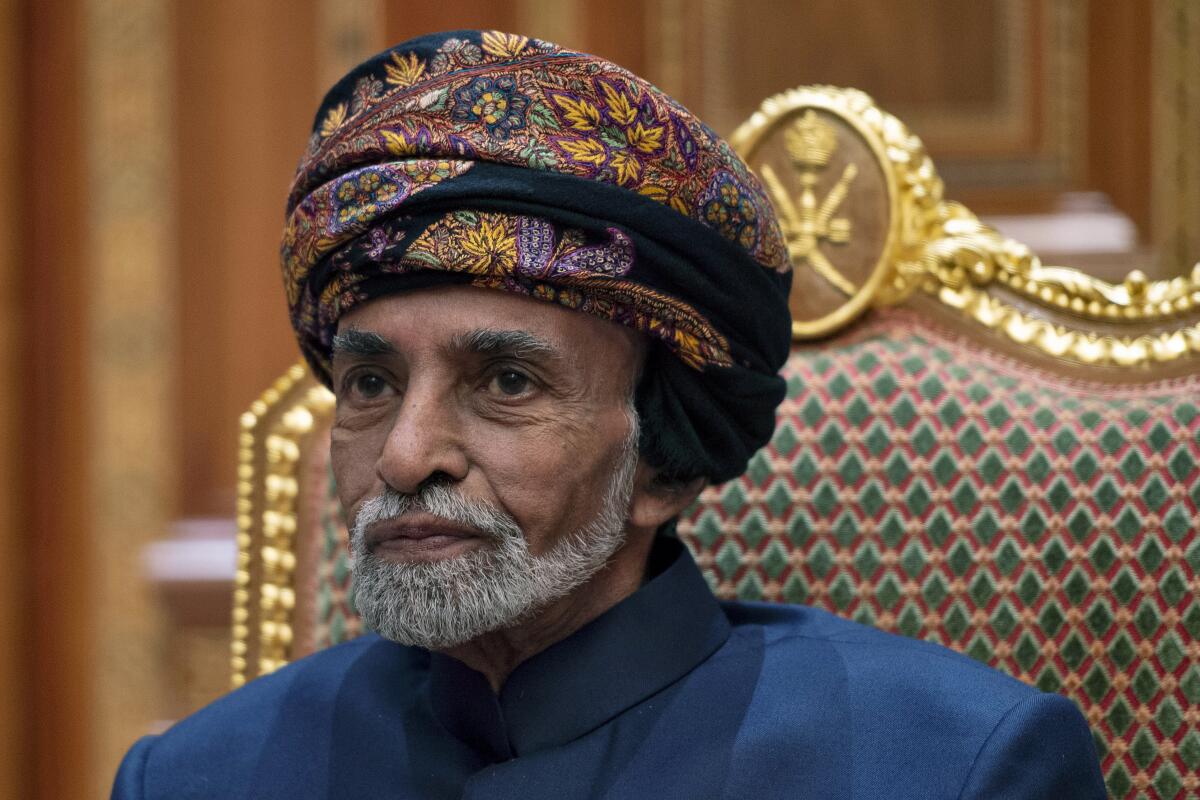Sultan Qaboos bin Said, who modernized Oman, dies at 79

- Share via
DUBAI, United Arab Emirates — Oman’s Sultan Qaboos bin Said, the Mideast’s longest-ruling monarch who seized power in a 1970 palace coup and pulled his Arabian sultanate into modernity while carefully balancing diplomatic ties between adversaries Iran and the U.S., has died. He was 79.
The state-run Oman News Agency announced his death late Friday on its official Twitter account. The sultan was believed to have been in poor health in recent months, and traveled to Belgium for a medical checkup last month. The royal court declared three days of mourning.
The reclusive sultan reformed a nation that was home to only three schools and harsh laws banning electricity, radios, eyeglasses and even umbrellas when he took the throne.
Under his reign, Oman became known as a welcoming tourist destination and a key Mideast interlocutor, helping the U.S. free captives in Iran and Yemen and even hosting visits by Israeli officials while pushing back on their occupation of land Palestinians want for a future state.
“We do not have any conflicts and we do not put fuel on the fire when our opinion does not agree with someone,” Sultan Qaboos told a Kuwaiti newspaper in a rare interview in 2008.
The sultan’s death, however, raises the risk of unrest in this country on the eastern edge of the Arabian Peninsula. The unmarried Sultan Qaboos had no children and did not publicly name an heir, a tradition among the ruling Al Said dynasty whose history is replete with bloody takeovers.
The sultan had been believed to be ill for some time, though authorities never disclosed what malady he faced. A December 2019 report by the Washington Institute for Near-East Policy described the sultan as suffering from “diabetes and a history of colon cancer.”
The sultan’s greatest diplomatic achievement came as Oman hosted secret talks between Iranian and U.S. diplomats that led to the landmark 2015 nuclear deal between Tehran and world powers limiting Iran’s atomic program in exchange for the lifting of economic sanctions. Yet even then, the sultan maintained ties to those in the Pahlavi dynasty that Iran’s 1979 Islamic Revolution overthrew.
More to Read
Start your day right
Sign up for Essential California for the L.A. Times biggest news, features and recommendations in your inbox six days a week.
You may occasionally receive promotional content from the Los Angeles Times.






